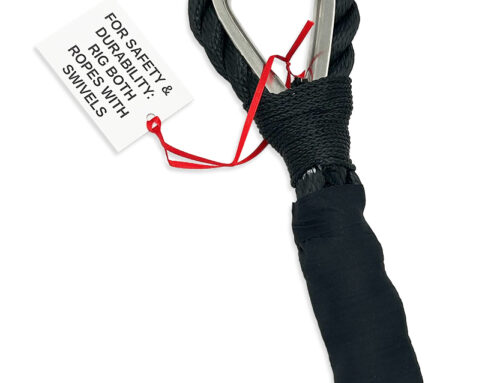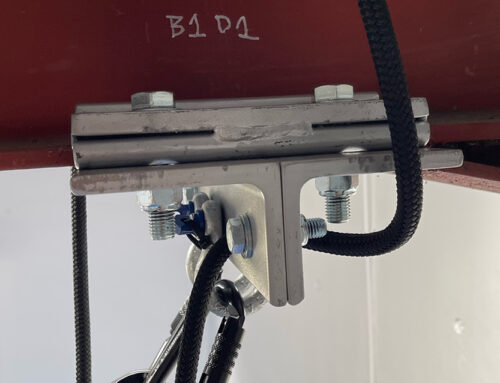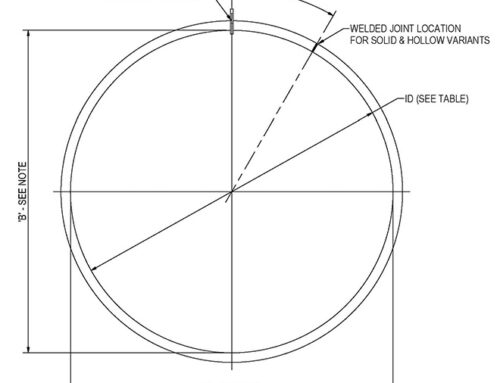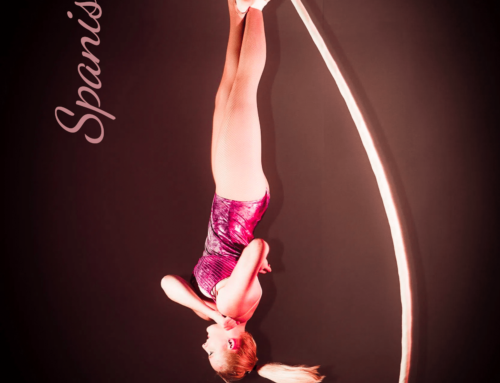So, you have progressed in your aerial training and have decided you want to take a shot at competing. With the growth in popularity of aerial arts, several aerial competitions are now available. These competitions give you the chance to perform on a big stage in a theatrical setting, with lights, a sound system and an audience. This blog will help you understand the costs involved in competing, the benefits of competing and hopefully also help you negotiate some of the pitfalls of competing, especially for your very first time.
Firstly, it’s good to note that each competition is different, with their own expectations and values, with individual divisions and criteria. First thing to do is research them well, get familiar with their specificities and figure out where you fit. The competition’s criteria can be based on skill level, tricks allowed in performance and/or the years of experience the competitor has accumulated. Looking on the internet, asking your aerial friends and consulting with your coaches are all really important steps to working out which competition you’d like to participate in.
Once you’ve figured out which competition you’d like to enter, you will need to build a routine. Depending on the competition and the division, there will be skills you MUST display to meet the criteria as well as skills you are not permitted to perform. It’s important to carefully read the guidelines of your selected competition and division to ensure you meet their particular expectations. It’s also important to choose a song that meets the specified time restriction (try to pick a song that you won’t get tired of, as you’ll be hearing it on repeat for weeks, if not MONTHS!). Once you’re happy with your routine and feel confident, it’s time to record your audition video and send it in.
If you didn’t get in. Then chat with your coach and try to assess how you can improve the audition reel for your next entry. It’s ok to not get in. It may just mean that what you’re doing is not suited to that competition or it may mean that you need more assistance from your coach to improve your strength and aerial awareness.
For those of you that did get accepted…
Congrats! Now you have to actually do the damn thing! IN FRONT OF EVERYONE! In addition to perfecting your routine, you need to organise your costume and plan for the day of the comp. Let’s get started with all this planning and see what it looks like.
MONEY MONEY MONEY!
There are a lot of little extra costs that can add up quickly and it’s something to be mindful about and prepare for. Let’s break it down:
Entry fees: most comps will have an audition fee and, if you are successful, a performance fee as well.
Audition fee: approx. $25–$50
Performance fee: approx $40–$100
Training/studio hire: preparing a routine for the stage takes time! If you don’t have access to a safe training set up at home, open training at your studio or renting studio time may be the only option.
Approx $10 –$35 per session depending on the studio
Privates coaching: one-on-one time with your coach for their advice and feedback on building your performance.
Approx $70–$150 per session
Equipment: while most comps will offer a “house” apparatus to use, the options are limited. Using an apparatus you know well reduces the risk of accident, injury and unpleasant surprises on the (already stressful!) day. You may be able to borrow an apparatus from your studio but if you don’t already own what you need, you may need to purchase your own equipment.
Approx $50–$2000
Costume: this varies wildly depending on what your budget limitations are and what your imagination elicits from you. You can pick something basic off the shelf from a dance store or you can employ a professional costume designer to create something unique. Remember, costume designers need 1-2 months to prepare your costume so you need to contact them early and be prepared to do multiple fittings.
Approx $40–$2000+
Hair and make-up: if you don’t feel confident doing your own, or if you just want pampering, getting a professional hair/make-up artist to do your hair and make up will add an additional cost to your expanding expenses. This will also need to be booked well in advance, so don’t leave this job until the last minute.
Approx $50–$250 per service
Transport: the price of fuel now is nothing to sneeze at. Depending on how far away you live from the competition venue, driving there, flying there, parking, tolls will all add to the costs.
Approx $50–$400
Accommodation: not competing close to home? You may need to pay for accommodation near the venue.
Approx $80–$500 per night depending on the time of year and location
Professional Photos: most competitions employ a professional photographer who will generally offer a bundle price for a number of photos with edits. Note that you are NOT allowed to have your family or friends take photos of you on stage during the competitions.
Approx $70–$200 depending on the photographer
Professional Video: most competitions will have a professional videographer who will offer an edited copy of your act for a price. Note that you are NOT allowed to have your family or friends take videos of you on stage during the competitions.
Approx $15-$50
Other Important Preparations
As well as all that cash, competitions take up time – extra time training, extra time over the weekend of the competition, extra time recovering from hard training sessions. To help your recovery, remember to eat well and book regular physiotherapy sessions and massages to help your body stay as functional as possible.
Your practice regime:
- You should always aim to practice in the conditions you will perform in. If your competition is outside, practice on an outdoor rig. If you’re only used to practicing outside but your competition is indoors, practice indoors.
- Practice in front of people AS MUCH AS POSSIBLE.
- Don’t stop in the middle of your routine if you make an error during a practice run. You need to teach your mind and body to cope with mistakes and keep performing through the errors which often happen. Live performance rarely goes exactly as planned!
- Practice in your costume and on the equipment you will be using as much as you can. This reduces the risk of injury or mishaps during your performance.
- If your apparatus has tape it should be worn in before your performance. DON’T FRESHLY TAPE YOUR APPARATUS JUST BEFORE YOUR PERFORMANCE!
—
The day has arrived…
You need to get to the venue and check in. Depending on the competition, you may need to arrive quite early for an induction and stage tour. You may also need to arrive early enough to do a technical rehearsal (tech run). Not all competitions offer this. Even if the competition does offer a tech run, they may not offer it for all categories. The tech run is your chance to feel how the rigging responds to you and your apparatus, to check performing height/s and to get a feel for the performance space. Usually, tech runs only last a couple of minutes so be prepared to use your time efficiently. Once the technical run is finished, the waiting begins. There is A LOT of waiting, so be sure to bring knitting, books, games, etc. to keep you entertained.
It’s your time to shine…!
This is it – the big moment you have waited for. The moment you have spent weeks (if not months or years) of time, money, blood, sweat and tears planning. Everything you have worked for comes down to just these few minutes on stage. You’re feeling all the emotions from anxiety to adrenaline! Make sure you pay attention to the schedule and be present when the stage managers call you. With all the waiting it is easy to miss your turn if you are not present when you, or your category, are called.
While waiting in the wings, they will announce your name and you take your place on stage… and before you know it, it’s over and done with, you take your bow and head backstage. You’ve done it! Congratulations! That was scary but you went for it. For better or worse it’s over. What now? More waiting!
Awards
This is the time for you and your fellow competitors to celebrate, the collective goal to perform that you all shared has been accomplished. You got out there and performed your heart out. Well done! Whether it went the way that you hoped for, or it did not, you set out to do this crazy thing and you’ve done it. The judges will usually come out and make some comments about the overall performances and then announce who they’ve awarded prizes to. Whether you place or not, you should be absolutely proud of what you were able to accomplish.
Weighing up the benefits of competing
While competitions offer an amazing opportunity, like with everything in life, they come with pros and cons
Pros
- Stage experience: performing on a professional stage as a solo performer with lighting, sound and an audience is an amazing experience – and addictive!
- Professional photo and video opportunity: who doesn’t want more great photos and videos of them doing what they love best?! Even though the performance is over in a flash, professional photos and video provide a keepsake that will last forever.
- Creative expression: this is your routine, your design, it can be anything you want it to be!
- Community and friendship: the aerial community is an amazing and supportive network. Friendships blossom while supporting one another in this shared goal.
Cons
- Affordability: as we mentioned above, all these costs add up. With the cost of living skyrocketing, this may be a deciding factor as to whether you can compete.
- Stress/pressure/injuries: aerialists can be highly self-critical and in the run up to a competition, they can push themselves too hard to achieve skills. Injuries while practicing for a performance are very common. It’s important to be gentle with yourself and know when your body needs rest.
- Judgement day: essentially you are there to be judged. By committing to a competition, you are submitting all your hard work and creative concepts to strangers to judge you. The judges are there to score you and provide you with feedback. They are looking for mistakes and they may also have their own biases. Their feedback on your artist presentation can feel bittersweet when you’ve poured your heart and soul into your performance. A great idea for negotiating this is to give the judges’ feedback directly to your coach. They can analyse it and disseminate it to you. Your coach knows you and your aerial journey best. They can give you the feedback on how to improve while negotiating the delicacies of your confidence.
- The fallout of not placing: this is a competition and not everyone can be a winner. If you don’t place, it can be devastating. If you are someone who struggles with self-confidence and mental health, you may need to ask yourself if performing in a competitive environment is the best thing for you. If you are a bit worried but still want to perform, you can always skip the award ceremony and just leave on the high of performing.
—
In summary
There are lots of good things about competing. It’s such a great opportunity to be on a real stage with professional lights and a mega sound system. It is also a great opportunity to get professional photos and videos with a beautiful backdrop. It can pump you full of beautiful adrenaline and expand your aerial family outside of its normal borders. Just make sure you know why you want to compete: is it a good opportunity to practice performing? It is a good opportunity for getting some professional media? Do you just want to WIN? Knowing your reason for competing will help you have realistic goals and achieve good outcomes.
Hopefully this blog has given you some idea of the costs involved, the time commitment as well as some of the pros and cons of competition life. While this blog provides some information you should speak to your coach directly about competing. Ask them if they think you are ready for competing both physically, technically and psychologically.
Remember, circus is meant to be FUN! So don’t be too serious! Keep it fun and breezy!








